How to enjoy Everybody's Gone to the Rapture: a real Englishman explains
Let’s start with a test. Try pronouncing the following English place names: Loughborough, Bicester, Belvoir, Cholmondeley. If you got all four right without cheating, congratulations! Albion welcomes you, the gods of Tweed and Gingham approve, Gog and Magog are yours to command. Proceed unmolested to Everybody’s Gone to the Rapture and have a jolly nice time getting your heart kicked around like a chicken nugget in a car park.
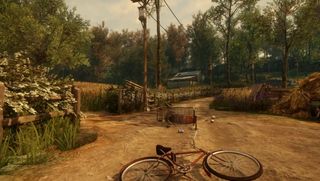
If you failed to instinctively grasp the arcane ways of such parochial Englishness, however, you need help before you go in. Consider me your guide through a threatening bundu of Marmite, crap cars and places that don’t sound how they’re written. Places exactly like Yaughton, which yes, you’re also pronouncing wrong.
I’m the perfect teacher because I grew up in Yaughton, or at least a flatter, moderately-less-apocalyptic facsimile of it called Cottesmore (pronounced ‘cottsmoor’). People from Cottesmore (yes, really pronounced ‘cottsmoor’) never leave (I did) and like fox hunting (I don’t). There was a shop that sold everything and nothing, and a church with a handsome rector. Here’s a photo:
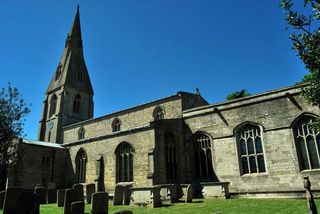
I never realised it at the time, but growing up in Cottesmore was training for Everybody’s Gone to the Rapture. Thatched houses, strange street names, dingy pubs: all of this was such so that I, a man with no discernible qualities other than having been raised in real place a bit like a not-real place, could share my knowledge with you, a person whom I hope is interested enough to still be reading. Why should you care? Because Everybody’s Gone to the Rapture is best enjoyed with a Thermos flask of weak lemon existential dread.
Anyone unfamiliar with the setting will be oblivious to how resonant the environment is; Rapture’s perfect evocation of English innocence, told through a world of soggy tents and abandoned hanging baskets, plays a huge part in amplifying its gradually unfolding tale. By providing context, I hope you can experience the game as I did: sobbing, like a child whose mum has turned to lasers, lost in the echo of a familiar place.
The first thing you need to know is that there’s only one gun in Yaughton. It belongs to a farmer named Frank. In England only farmers have guns, and the only guns they have are shotguns named after Joanna Lumley. Nobody knows why farmers have guns: it’s a fortean mystery, a bit like crop circles, Stonehenge and the origin of the crumpet. Although guns are limited to one per farmer, everyone in England knows how to fire a shotgun, thanks to the prevalence of clay pigeon shooting, in which you fire at targets which are neither clay nor pigeon. I offer myself as proof of this claim: I fired my first and last shotgun when I was four years old, but please don’t tell my mum or dad will get in trouble. Short version: yes, there is a gun, but no you can’t use it - not even if you’re a farmer. It’s exactly like strolling around a real village, and this sedate presentation makes the dramatic moments soar. Everybody’s Gone to the Rapture is a first person walker.
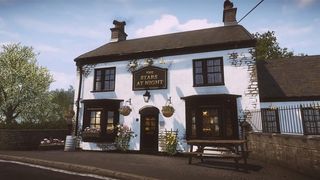
That leads neatly onto my next point: walking. You should walk everywhere in Yaughton. This is partly because it’s gorgeous, and running past something so lovely would be vulgar, like drinking Pinot Gris out of a flower pot. But it’s also because English people can’t run. I mean, we can run, but we usually choose not to. This is very different from jogging. That’s a hobby, and is therefore perfectly acceptable, because you’re dressed correctly and it happens through choice and not circumstance.
Sign up to the 12DOVE Newsletter
Weekly digests, tales from the communities you love, and more
Speaking generally (by which I absolutely mean ‘personally speaking’), English people run like they’re wearing clown shoes made of meat. If you’re late for the bus, it’s best to pretend you never intended to catch it, because a 40-minute wait is better than a 10-second sprint which makes you look like you’re struggling with an invisible tuba. It’s undignified. Apply this logic to Everybody’s Gone to the Rapture, and you’ll be fine. The run button should be viewed with suspicion. Just because it exists, it doesn’t mean you should use it; like a bidet, or emojis. Walking gives you a chance to gently absorb Yaughton, but also to think about the stuff you’ve seen. Much like waiting for the next bus, it forces you to consider the events that led here - whether it’s leaving the house late to avoid smalltalk with a neighbour, or exploring a glowing village where everyone has mysteriously disappeared. Don’t rush it.
Before you play Everybody’s Gone to the Rapture, you should also be familiar with The Archers, or at the very least Radio 4. Radio 4 is the reason rational people love to pay the television license fee despite the existence of shows like Two Pints of Lager and a Packet of Crisps (pronounced ‘toolcrips’, or more simply, ‘shit’). The Archers is a radio show about the pressures of modern rural life. It has a theme tune that sounds like greedy babies being bounced on knees, and it’s so well crafted it only takes 20 seconds to catch up with everything that’s happened since 1954. Handsome cowmen, yoghurt, preventing the spread of bovine tuberculosis via badger vaccination; real mud and thunder stuff.
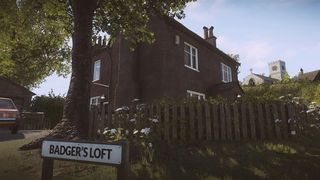
Similarly, Everybody’s Gone to the Rapture does an amazing job of making you care about the everyday woes of people you can hear but not see - not by way of sweeping, epic drama, but via the mundane trivialities that British people love because they’re used to accidentally hearing similar stuff on the radio. Admittedly, The Archers hasn’t yet tried a storyline about The End Days, but they did do foot-and-mouth disease in 2001.
Next up: holidays. It starts raining the moment you reach the holiday park in Yaughton. This isn’t intentional. The Chinese Room didn’t program it. In England, it just pisses it down wherever there are caravans. Even virtual ones. It’s a law of nature. Just by writing the word ‘caravan’, I’ve made it rain in my living room. Everyone in England actually gets 25 weeks off work each year, but we’re forbidden from taking it all in case Blighty is submerged beneath a deluge of punishment piss. And in case you think I’m making all of this up, here’s some proof from an actual newspaper.
If anything, Rapture’s holiday park is a more potent source of nostalgia than Yaughton itself. Most English people have huddled in a caravan, waiting for sunshine that will only reappear once they’re safely back at work or school. In Rapture, there’s a sense that the rain will never pass, and there isn’t even a copy of magnetic travel Ludo to pass the time.
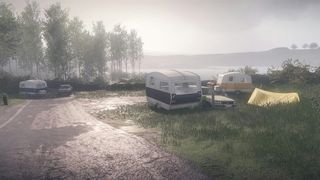
I’ll finish with something that’s hardest of all to grasp. In many American representations of small towns, everyone is trying to escape - possibly because the US is so huge that civilization can be hours away. England, by comparison, is smaller than most swimming pools: I’m tall enough that I can fall over in Bath and land in Bristol. Perhaps because of this, escaping idyllic villages is lower on our priority list. In fact, there’s a part of me that would love to move back to Yaughton, or become a joke character in The Archers.
That’s why Everybody’s Gone to the Rapture is so affecting. For my generation, it’s like returning to our childhood and finding it deserted. Little touches, like the plastic toy telephone that’s in every doctor’s surgery, or the rubbish graffiti, quietly remind me that although I can go back to the actual place, the moments I’m searching for are gone forever. And that’s what Rapture is about, in literal, narrative terms and ambiently, in every pixel of its perfect, deserted familiarity. Don’t believe what you hear about British upper lip stiffness: seeing an abandoned Simon outside a home which could be your own is enough to make the most stoic Anglo Saxon sob.
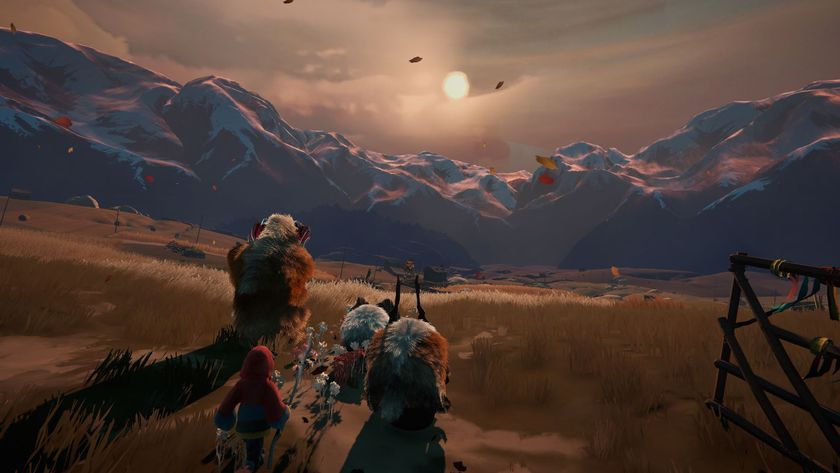

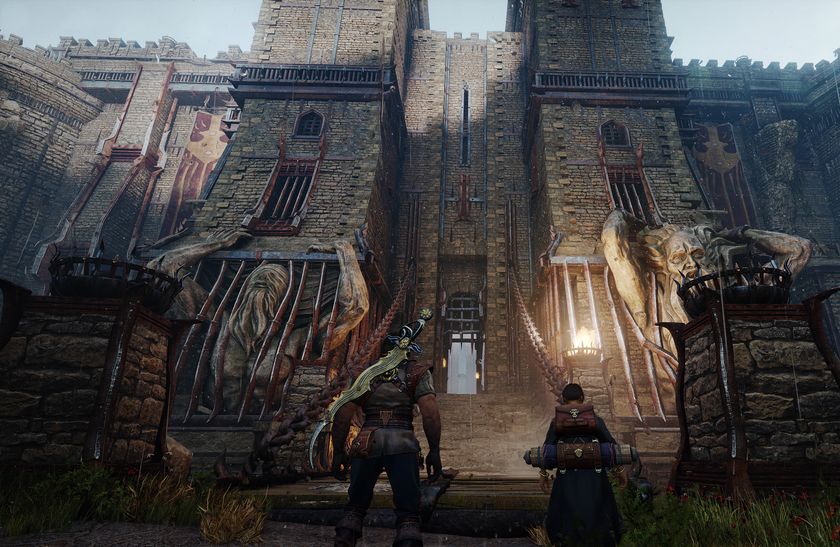







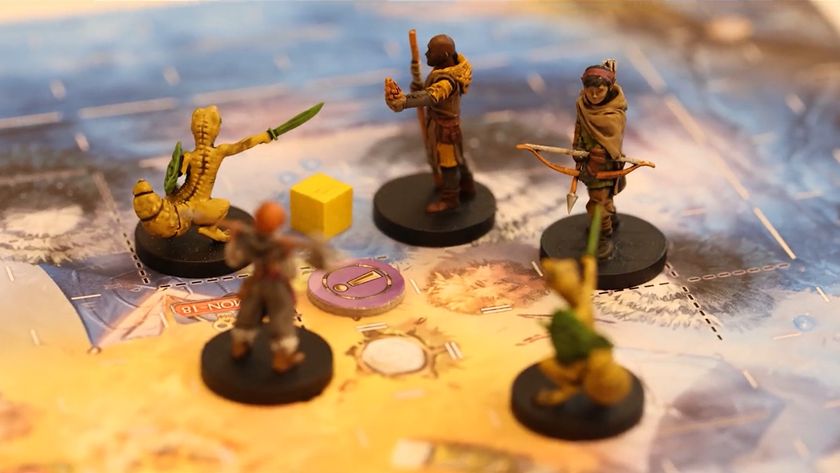


With 18,000 glowing Steam reviews on their lovely debut game, this indie team's game about leading cute fantasy yaks up a mountain is instantly one to watch

Blades of Fire plays like a lost Xbox 360-era mashup between God of War and Soulslikes, and it's coming from the studio behind Metroid Dread





